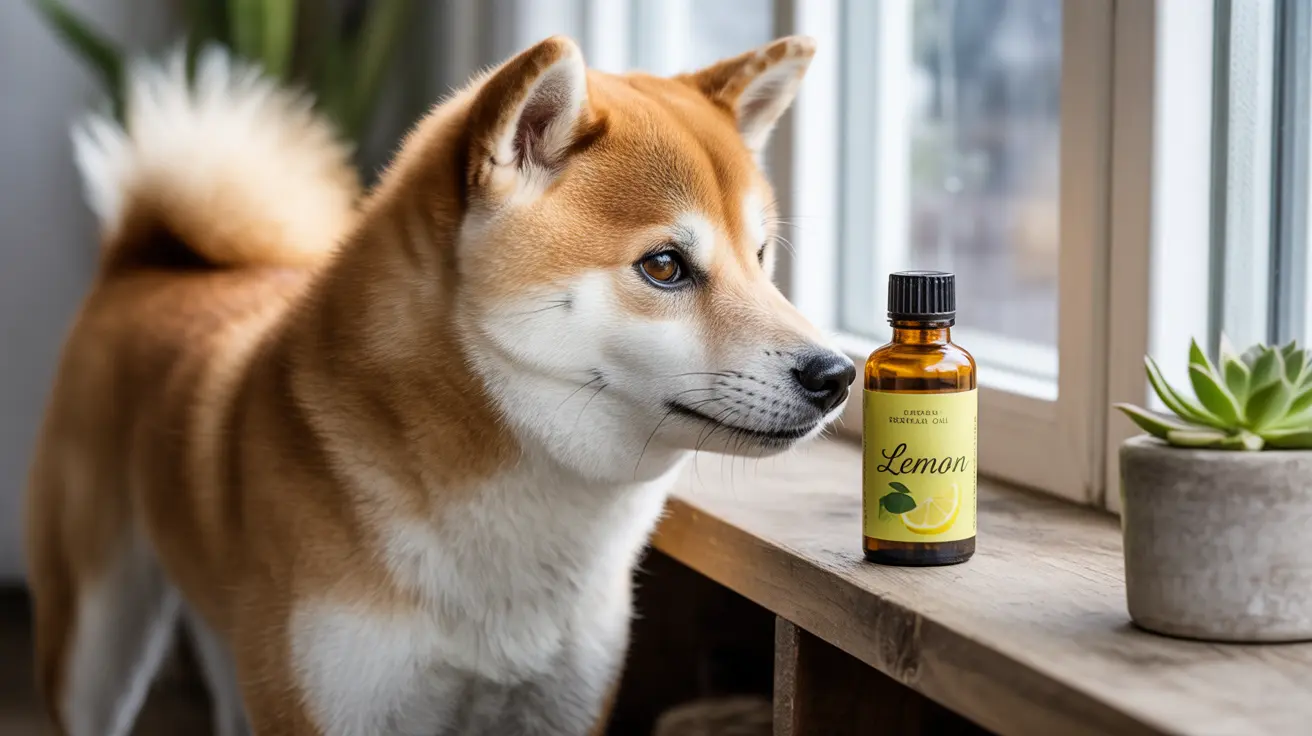As essential oils grow in popularity for home use, many pet owners wonder about their safety around their furry family members. One common question that arises is whether lemon essential oil is safe for dogs. The answer requires careful consideration, as what's natural isn't always safe for our canine companions.
This comprehensive guide will explore the potential risks and safety concerns of using lemon essential oil around dogs, helping you make informed decisions about aromatherapy in your pet-friendly home.
Understanding Lemon Essential Oil and Its Components
Lemon essential oil contains powerful compounds like d-limonene and linalool, which give it its characteristic citrus scent and therapeutic properties. While these compounds have various beneficial uses for humans, they can pose significant risks to dogs due to their different metabolic systems.
The Risks of Lemon Essential Oil for Dogs
Direct Contact and Absorption
Dogs can be exposed to essential oils through multiple routes:
- Skin absorption through direct application
- Ingestion by licking treated surfaces or their own fur
- Inhalation of diffused oils
- Accidental consumption of concentrated oil
Potential Health Complications
Even minimal exposure to lemon essential oil can cause various adverse reactions in dogs:
- Skin irritation and chemical burns
- Liver damage or failure
- Respiratory distress
- Gastrointestinal upset
- Photosensitivity leading to increased risk of sunburn
Safe Practices for Households with Dogs
Alternative Options
Instead of using lemon essential oil, consider these pet-safe alternatives:
- Pet-specific aromatherapy products
- Natural air fresheners like baking soda
- Fresh citrus peels (kept out of reach)
- HEPA air purifiers
Creating a Safe Environment
If you must use essential oils in your home:
- Keep all oils in secure, pet-proof storage
- Use diffusers in well-ventilated rooms
- Ensure dogs have access to oil-free spaces
- Never apply oils directly to your pet
- Monitor your dog for any adverse reactions
When to Seek Veterinary Care
Watch for these warning signs of essential oil toxicity:
- Excessive drooling or vomiting
- Difficulty breathing
- Lethargy or weakness
- Tremors or seizures
- Skin irritation or burns
- Changes in behavior
Frequently Asked Questions
Is lemon essential oil safe for dogs to inhale or apply topically?
No, lemon essential oil is not safe for dogs to inhale or apply topically. The compounds in lemon oil can cause respiratory irritation and skin burns, and even diluted versions pose risks through absorption and inhalation.
Why is lemon essential oil dangerous for cats, and what are the symptoms of toxicity?
Lemon essential oil is particularly dangerous for cats because they lack the liver enzymes needed to metabolize its compounds. Symptoms of toxicity include drooling, vomiting, tremors, respiratory distress, and potential liver failure.
How can I safely use lemon essential oil in my home with pets?
If you must use lemon essential oil, keep it in a separate, well-ventilated room that pets cannot access. Use minimal amounts in diffusers, ensure proper ventilation, and store oils securely away from pets.
What are some pet-friendly alternatives to lemon and lavender essential oils for calming and therapeutic purposes?
Consider pet-specific products designed and tested for animal use, such as calming treats, pheromone diffusers, or veterinarian-approved aromatherapy products made specifically for pets.
What are the signs of essential oil toxicity in dogs and cats, and when should I seek veterinary care?
Seek immediate veterinary care if you notice drooling, vomiting, difficulty breathing, tremors, skin irritation, or behavioral changes. These symptoms can indicate essential oil toxicity and require prompt medical attention.
Conclusion
While lemon essential oil offers many benefits for humans, it poses significant risks to dogs and should be avoided in households with pets. Always prioritize your pet's safety by choosing pet-friendly alternatives and consulting with your veterinarian about safe aromatherapy options for your home.






